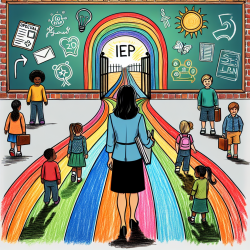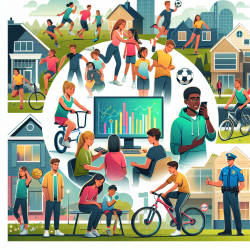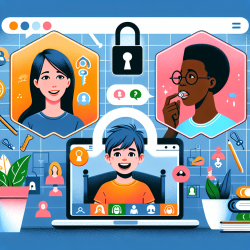Welcome, educational psychologists, to a journey toward self-actualization through the lens of Individualized Education Program (IEP) planning and meetings. In the realm of special education, our collective mission is to foster an environment where every child, including those with unique needs, can thrive and reach their fullest potential. This mission is not just a professional obligation; it's a path to self-actualization, allowing us to tap into our deepest capabilities and contribute meaningfully to the lives of the kids we serve.
The process of IEP planning and meetings is at the heart of special education. It's where collaboration, expertise, and empathy converge to create tailored educational pathways for students with disabilities. As educational psychologists, you play a pivotal role in this process, bringing your expertise in understanding the complex interplay between learning environments, psychological principles, and individual student needs.
Understanding the IEP Process
The IEP process is a collaborative effort involving teachers, parents, special education directors, and you, the educational psychologists. It begins with an evaluation of the student's strengths and needs, leading to the development of a comprehensive plan that outlines specific educational goals, methodologies, and accommodations necessary for the student to succeed.
Your role in this process is multifaceted. It involves:
- Assessing the student's psychological and educational needs.
- Contributing to the development of measurable and achievable goals.
- Recommending evidence-based interventions and supports.
- Ensuring that the IEP addresses the whole child, including social and emotional aspects of learning.
Building Collaborative Relationships
One of the keys to successful IEP planning and meetings is building strong, collaborative relationships with all stakeholders. This includes:
- Creating a space for open and honest communication.
- Listening actively to the concerns and aspirations of students and their families.
- Working closely with teachers and special education staff to ensure that plans are not only developed but also implemented effectively.
As educational psychologists, your ability to foster these relationships is crucial. It not only enhances the IEP process but also ensures that students feel supported and understood on their educational journey.
Empowering Students and Families
A significant aspect of your role is to empower students and their families to take an active part in the IEP process. This involves:
- Educating families about their rights and the resources available to them.
- Helping students understand their own learning profiles and how to advocate for their needs.
- Encouraging families to share their insights and concerns, ensuring that their voices are heard and valued.
This empowerment is a step toward self-actualization for the families and students you work with, helping them to see themselves as active participants in their educational journey.
Overcoming Challenges
IEP planning and meetings can present challenges, from navigating complex regulations to addressing differing opinions among team members. However, these challenges also offer opportunities for growth and development. As educational psychologists, you are uniquely positioned to help navigate these challenges by:
- Providing clarity and insight into the psychological aspects of learning and behavior.
- Facilitating discussions that focus on the student's best interests.
- Offering creative solutions that respect the needs and capabilities of all involved.
By approaching these challenges with empathy, expertise, and a collaborative spirit, you not only contribute to the immediate success of the IEP process but also to your own journey of self-actualization.
The Path Forward
As we reflect on the critical role of educational psychologists in IEP planning and meetings, it's clear that this work is more than a professional duty; it's a calling that touches the core of who we are. It challenges us to use our skills and knowledge to make a real difference in the lives of kids and their families. It invites us to grow, learn, and ultimately, find fulfillment in the service of others.
So, let us embrace this journey with open hearts and minds, ready to empower, support, and inspire. Together, we can navigate the complexities of special education, transforming challenges into opportunities for growth, understanding, and self-actualization.
Thank you for your dedication, your passion, and your unwavering commitment to the children and families we serve. Your work is not just important; it's essential to creating a world where every child has the opportunity to reach their highest potential.










